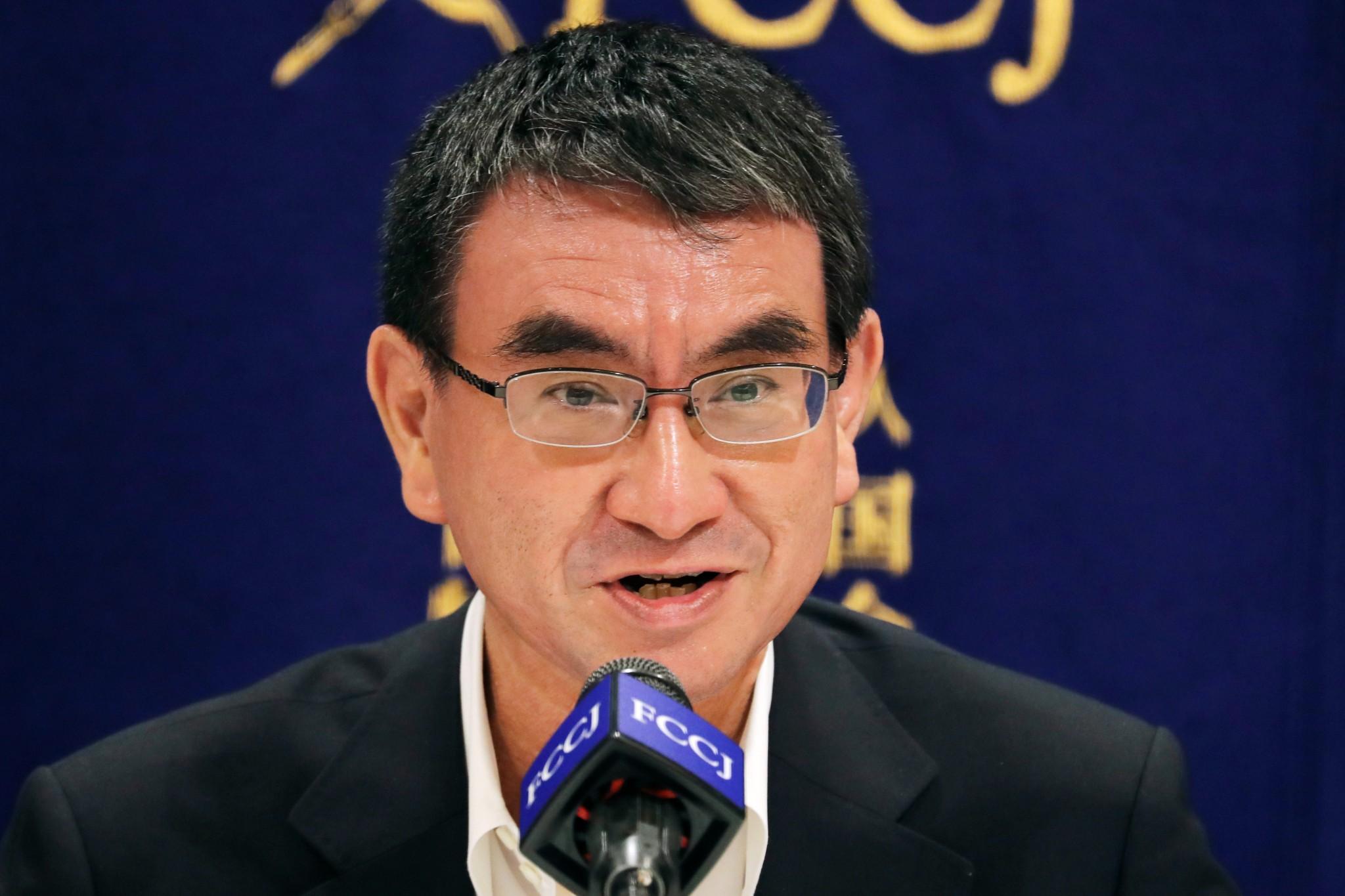Japan scraps costly US missile system despite North Korea threat
Japan will discuss ways to protect country and people from north’s missiles and other threats, says defence minister

Japan’s National Security Council has endorsed plans to cancel the deployment of two costly land-based US missile defence systems aimed at bolstering the country’s capability against threats from North Korea, the country’s defence minister said on Thursday.
Defence minister Taro Kono said the country will now revise its missile defence programme and scale up its entire defence posture.
The council made its decision on Wednesday, and now the government will need to enter negotiations with the US about what to do with payments and the purchase contract already made for the Aegis Ashore systems.
Mr Kono announced the plan to scrap the systems earlier this month after it was found that the safety of one of the two planned host communities could not be ensured without a hardware redesign that would be too time-consuming and costly.
“We couldn’t move forward with this project, but still there are threats from North Korea,” Mr Kono said at a news conference on Thursday.
Japan will discuss ways to better protect the country and the people from the north’s missiles and other threats, he said.
The Japanese government in 2017 approved adding the two Aegis Ashore systems to enhance the country’s current defences consisting of Aegis-equipped destroyers at sea and Patriot missiles on land.
Defence officials have said the two Aegis Ashore units could cover Japan entirely from one station at Yamaguchi in the south and another at Akita in the north.
The plan to deploy the two systems already had faced a series of setbacks, including questions about the selection of one of the sites, repeated cost estimate hikes that climbed to 450bn yen (£3.3bn) for their 30-year operation and maintenance, and safety concerns that led to local opposition.
Mr Kono said Japan has signed a contract worth nearly half the total cost and paid part of it to the US. He said Japan is trying to get the most out of what it has already paid, though he did not elaborate.
Prime minister Shinzo Abe, who has steadily pushed to step up Japan’s defence capability, said last week that in light of the scrapping the government would need to reconsider Japan’s missile defence programme and do more under the country’s security alliance with the US.
Mr Abe said the government would consider the possibility of acquiring preemptive strike capability, a controversial plan that critics say would violate Japan’s war-renouncing constitution.
Mr Kono on Thursday also raised concern about China’s increasingly assertive activity in regional seas and skies. He said Chinese coast guard vessels are repeatedly in and out of Japanese waters around disputed East China Sea islands, and a Chinese submarine recently passed just off Japan’s southern coast.
“China is trying to change the status quo unilaterally in East China Sea, South China Sea and with Indian border and Hong Kong as well,” Mr Kono said. “It is easy to make connections about those issues.”
AP
Join our commenting forum
Join thought-provoking conversations, follow other Independent readers and see their replies
Comments
Bookmark popover
Removed from bookmarks